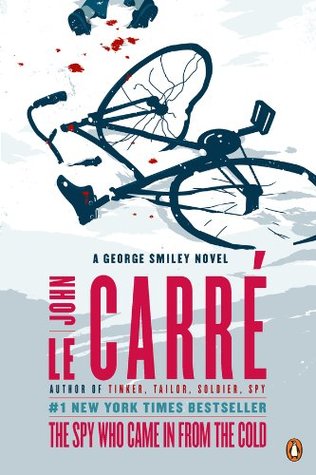More on this book
Community
Kindle Notes & Highlights
I was the British spy who had come out of the woodwork and told it how it really was, and anything I said to the contrary only reinforced the myth. And since I was writing for a public hooked on Bond and desperate for the antidote, the myth stuck. Meanwhile, I was receiving the sort of attention writers dream of. My only problem was, I didn’t believe my own publicity. I didn’t like it even while I was subscribing to it, and there was in the most literal sense nothing I could say to stop the bandwagon, even if I’d wanted to. And I wasn’t sure I did.
The paradox was compounded when an American journalist with connections told me out of the corner of his mouth that the reigning chief of my Service had advised a former director of the CIA that I had been his serving officer, and that he had told nobody but his very large retinue of best friends, and that anyone in the room who was anyone knew I was lying. Every interview I have faced in the fifty years since then seems designed to penetrate a truth that isn’t there, and perhaps that’s one reason why I have become allergic to the process.
The novel’s merit, then—or its offense, depending where you stood—was not that it was authentic, but that it was credible. The bad dream turned out to be one that a lot of people in the world were sharing, since it asked the same old question that we are asking ourselves fifty years later: how far can we go in the rightful defense of our Western values without abandoning them along the way?
“I mean, you can’t be less ruthless than the opposition simply because your government’s policy is benevolent, can you now?”
He knew he was written off—it was a fact of life which he would henceforth live with, as a man must live with cancer or imprisonment.
He met failure as one day he would probably meet death, with cynical resentment and the courage of a solitary. He’d lasted longer than most; now he was beaten. It is said a dog lives as long as its teeth; metaphorically, Leamas’ teeth had been drawn: and it was Mundt who had drawn them.
Intelligence work has one moral law—it is justified by results.
He looked like a man who could make trouble, a man who looked after his money, a man who was not quite a gentleman.
“We have to live without sympathy, don’t we? That’s impossible of course. We act it to one another, all this hardness; but we aren’t like that really, I mean . . . one can’t be out in the cold all the time; one has to come in from the cold . . . d’you see what I mean?”
Everywhere that air of conspiracy which generates among people who have been up since dawn—of superiority almost, derived from the common experience of having seen the night disappear and the morning come.
Ashe, Kiever, Peters; that was a progression in quality, in authority, which to Leamas was axiomatic of the hierarchy of an intelligence network. It was also, he suspected, a progression in ideology. Ashe, the mercenary, Kiever the fellow traveller, and now Peters, for whom the end and the means were identical.
Sometimes, because he was a lawyer, he asked them for his own pleasure alone, to demonstrate the discrepancy between evidence and perfective truth.
Sometimes she thought Alec was right—you believed in things because you needed to; what you believed in had no value of its own, no function.
It was a foul, foul operation. But it’s paid off, and that’s the only rule.”


